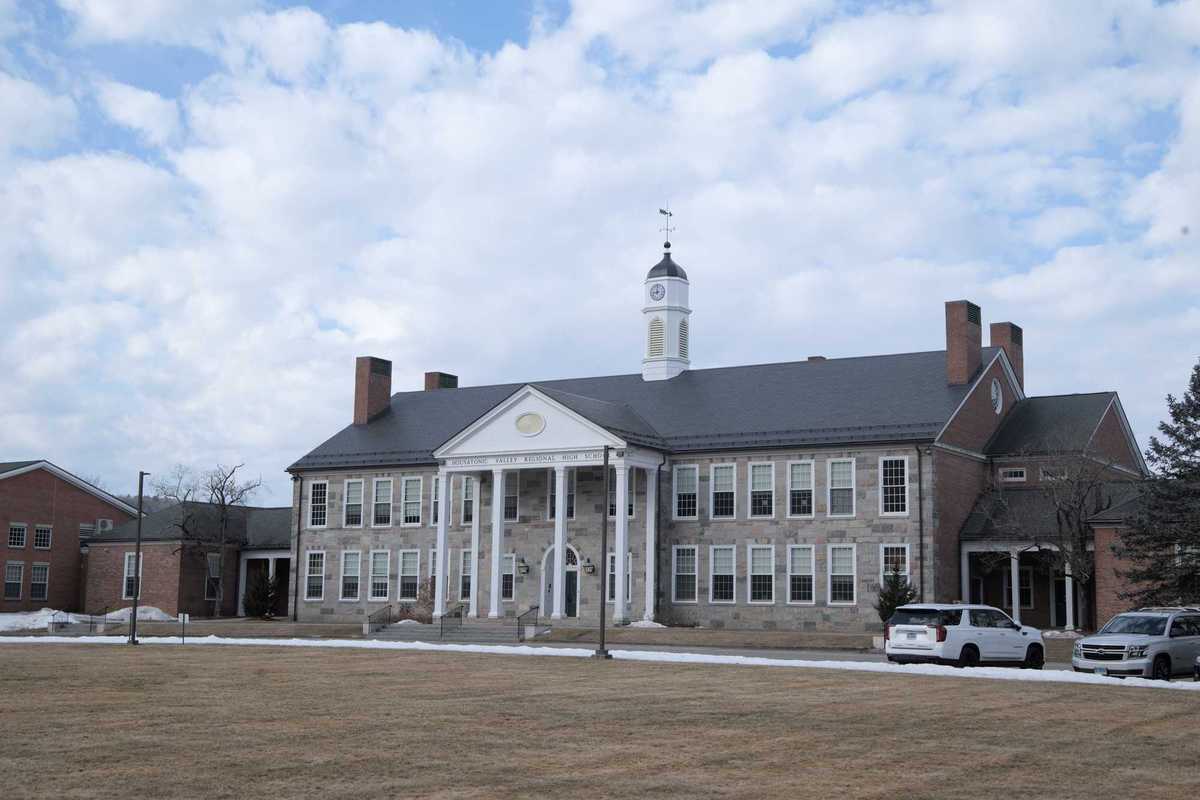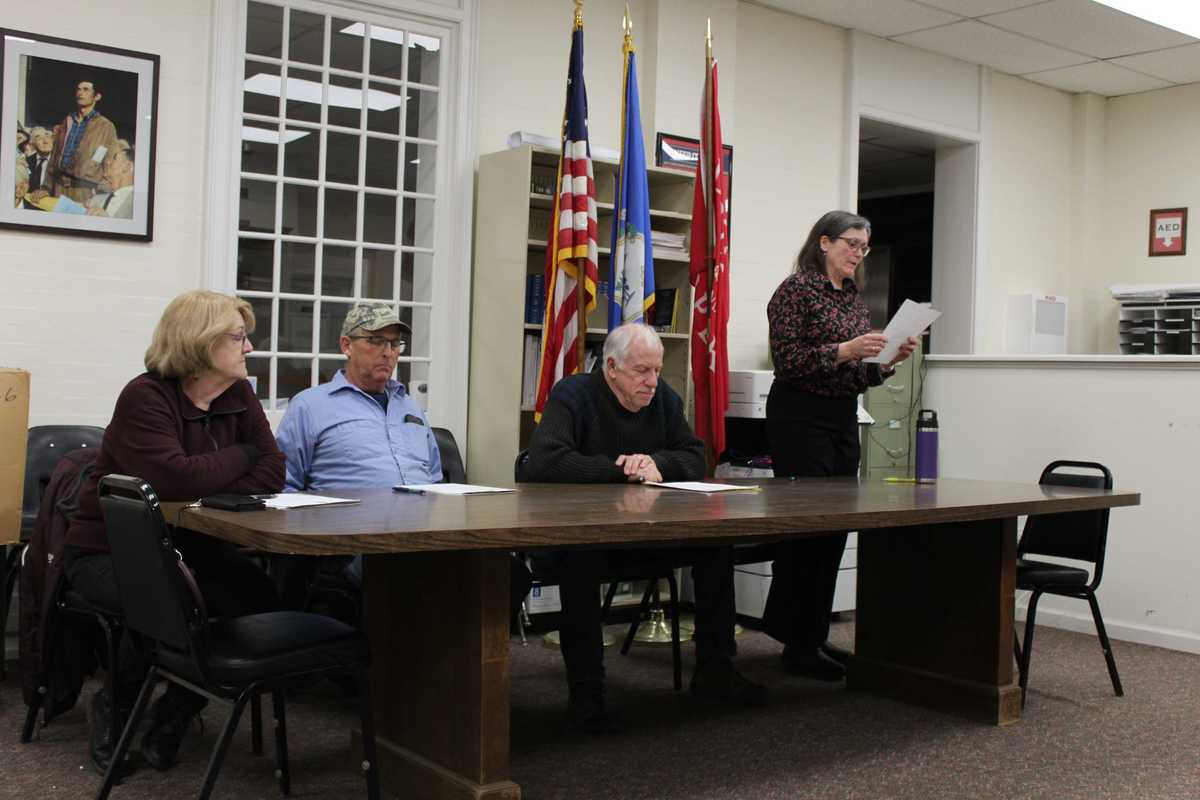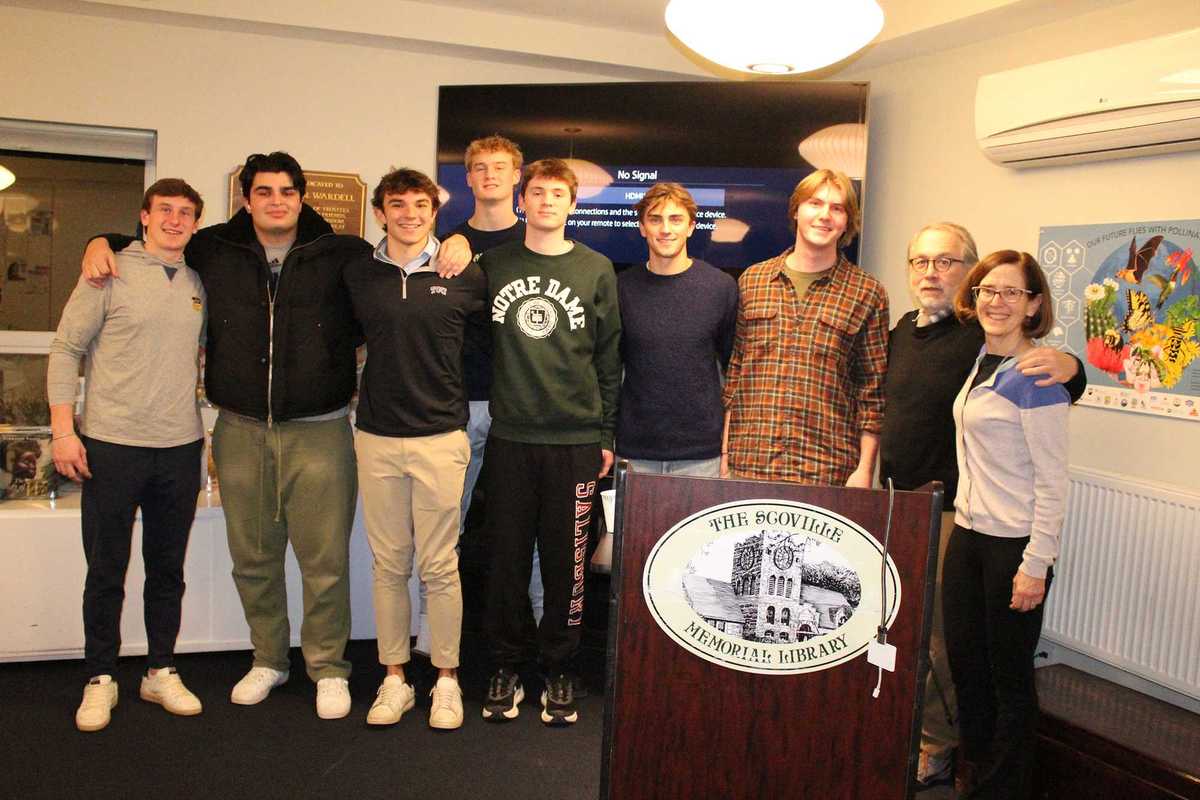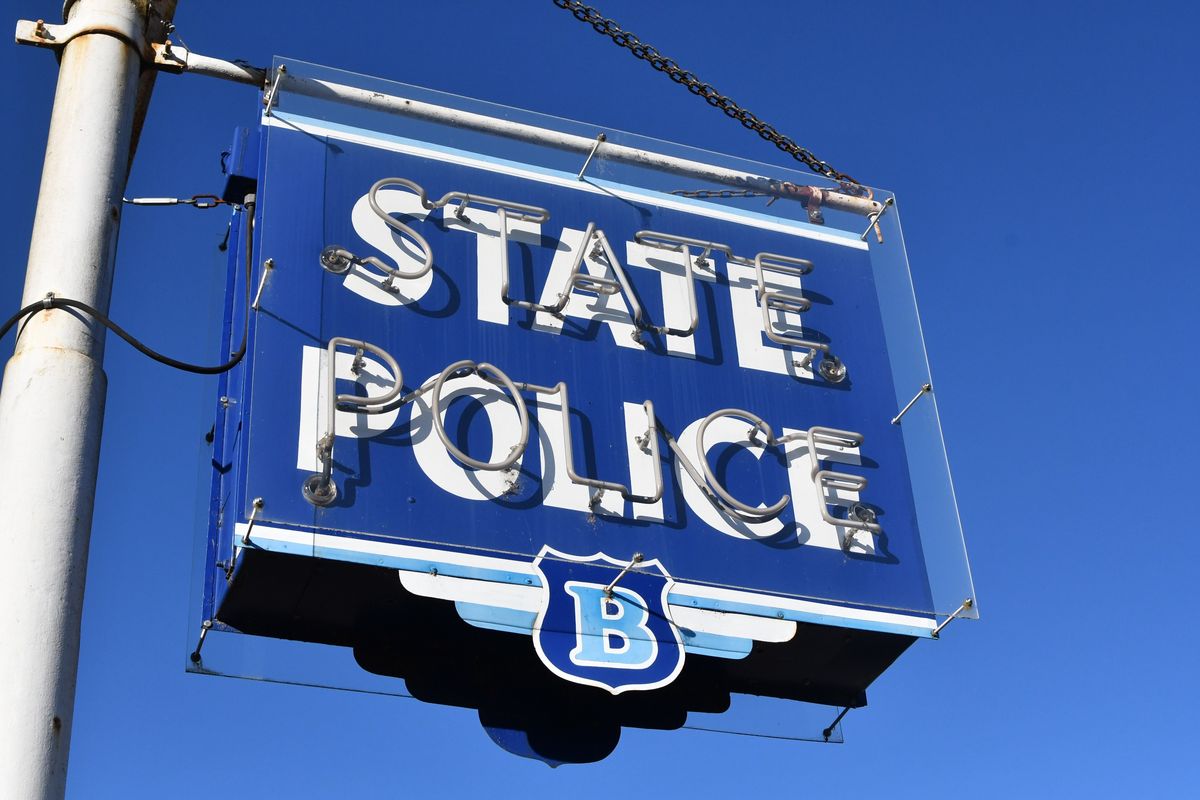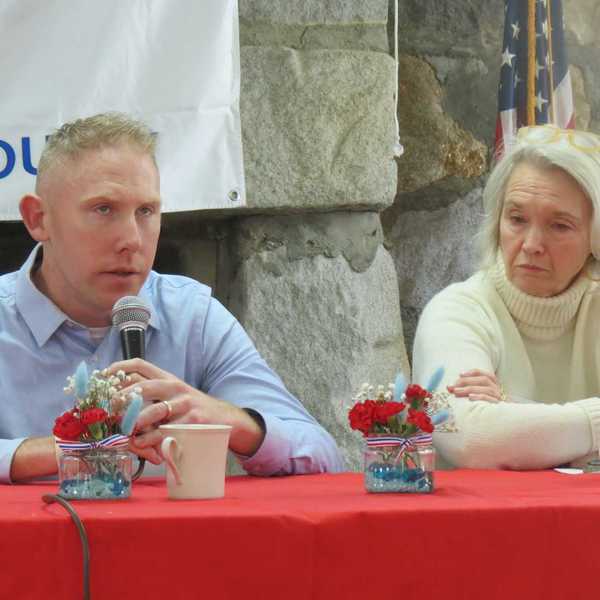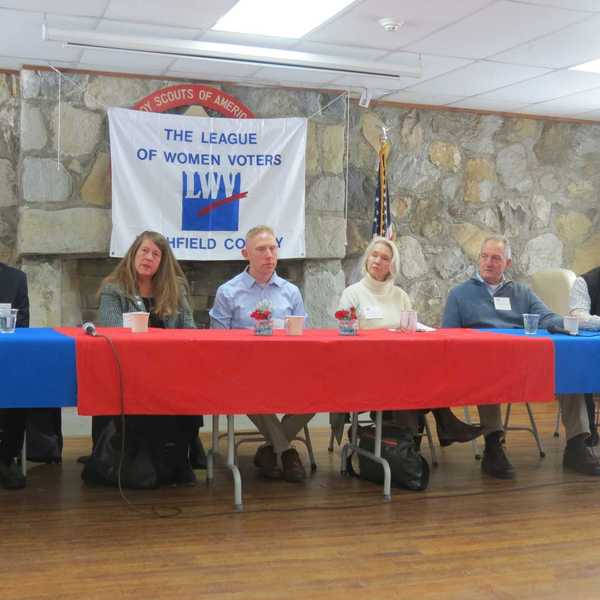Latest News
Housatonic releases honor roll
Lakeville Journal
Mar 04, 2026
Housatonic Valley Regional High School
File photo
FALLS VILLAGE — Principal Ian Strever announced the second quarter marking period honor roll at Housatonic Valley Regional High School for the 2025-26 school year.
Highest Honor Roll
Grade 9
Katelyn Holst-Grubbe (North Canaan), Ava Humes (North Canaan), Noell Laurry (Kent), Lola Miller (Falls Village), Elexis Petkovich (North Canaan), April Puerto (Salisbury), Solomon Schmidt (Salisbury), Alastair Schnepf (Wassaic), Olivia Simonds (North Canaan), Gia Torzilli (Gaylordsville), Marisol Vaughn (Kent).
Grade 10
Max Bochnovich (Salisbury), Eliana Lang (Salisbury), Lily McCabe (Salisbury), Alison McCarron (Kent), Katherine Money (Kent), Sadie Morales Chapell (Salisbury), Mira Norbet (Sharon), Abigail Perotti (North Canaan), Owen Schnepf (Wassaic), Schuyler Thompson (Falls Village), Emery Wisell (Kent).
Grade 11
Adelaide Almeida (Salisbury), John DeDonato (Salisbury), Adelyn Diorio (North Canaan), Carmela Egan (Salisbury), Jonas Johnson (North Canaan), Finian Malone (Sharon), Meadow Moerschell (Kent), Ishaan Tantri (Salisbury).
Grade 12
Lily Beurket (Cornwall), Genesis Bravo Guilcashina (North Canaan), Ryder Conte (Falls Village), Evelyn Flores-Hernandez (North Canaan), Kierra Greene (North Canaan), Madelyn Johnson (North Canaan), Alexa Meach (North Canaan), Ibby Sadeh (Falls Village), Alex Woodworth (Salisbury).
High Honor Roll
Grade 9
Anna Ayer (Salisbury), Jessica Davis (North Canaan), Stefany Delgado Rosales (Warren), Lainey Diorio (North Canaan), Lyla Diorio (North Canaan), Emma Duffy (Sharon), Carter Finney (North Canaan), Patrick Hafner (Falls Village), Joanna Haratyk (Torrington), Ryan Hinman (North Canaan), Meriel Hughes (Salisbury), Tyler LaPlante (North Canaan), Braydon Majette (Sharon), Keely Malone (Sharon), Grace O’Brocki (Salisbury), August Olson (Falls Village), Donald Polk (Cornwall), Mason Routhier (North Canaan), Justin Sorrell (North Canaan), Scarlett Visconti (North Canaan), Jaxon Visockis (Salisbury).
Grade 10
Krystin Ackerman (North Canaan), Paige Beeman (North Canaan), Mia Belter (Salisbury), Nico Bochnovich (Salisbury), Jackson Brammer (Sharon), Lucius Bryant (Cornwall), Zaira Celso-Cristobal (Sharon), Winter Cheney (Cornwall), Alisa Christiansen Madsen (North Canaan), Louise Faveau (Salisbury), Luca Floridis (Salisbury), Samuel Garcia Pulido (North Canaan), Beatrice Gifford (Kent), Angel Gonzalez (Salisbury), Addison Green (Kent), Kartel Henry (North Canaan), Aryanna Horton (Salisbury), Marlow LaPointe (Falls Village), Dany Martinez (North Canaan), Wyatt Merwin (Salisbury), Logan Miller (Falls Village), Nova Pratt (North Canaan), Karmela Quinion (North Canaan), Vilija Salazar (Kent), Juliette Trabucco (Kent), Federico Vargas Tobon (Salisbury), Payton Wagner (North Canaan), Olivia Whitney (North Canaan).
Grade 11
Hayden Bachman (Falls Village), Byron Bell (Cornwall), Sophia Camphouse (Sharon), Olivia Claydon (North Canaan), Georgie Clayton (Salisbury), Sophia DeDominicis Fitzpatrick (Sharon), Natasha Dennis (North Canaan), Kellie Eisermann (Salisbury), Levi Elliott (Millerton), Guadalupe Flores-Hernandez (North Canaan), Grace Graney (Falls Village), Alexa Hoadley (Kent), Sydney Howe (North Canaan), Aiden Krupa (Torrington), Makenzie Lidstone (Salisbury), Daniel Moran (Norfolk), Jackson Olson (Falls Village), Logan Padelli (North Canaan), Gustavo Portillo (North Canaan), Rivers Richard (North Canaan), Darwin Wolfe (Falls Village), Nathan Zani (Ashley Falls), Ivy Zheng (North Canaan).
Grade 12
Peter Austin (Kent), Hayden Bell (Cornwall), Olivia Brooks (Salisbury), Victoria Brooks (Salisbury), Christopher Crane (North Canaan), Mia DiRocco (Cornwall), Shanaya Duprey (North Canaan), Anthony Foley (North Canaan), Mollie Ford (Falls Village), Anna Gillette (Salisbury), Nicolas Gonzalez (Salisbury), Adam Hock (Kent), Sara Ireland (Salisbury), Hannah Johnson (North Canaan), Eric Lopez Espinosa (Salisbury), Simon Markow (Cornwall), Francisco Mendoza Ratzan (North Canaan), Daphne Paine (North Canaan), Phurba Sherpa (Salisbury), Cole Simonds (North Canaan), Celeste Trabucco (Kent), Silas Tripp (Falls Village), Ayden Wheeler (Amenia).
Honor Roll
Grade 9
Maria Arango Agudelo (North Canaan), Phoebe Conklin (Salisbury), Connor Crane (North Canaan), Isabella Curtis (Norfolk), Ciri Dean (North Canaan), Aubrey Funk (North Canaan), Violeta Londono (North Canaan), Sawyer Margerelli (Salisbury), Autumn McKone (North Canaan), Sabrina Murtagh (North Canaan), Jerron Nirschel (Falls Village), Tanner Spear (Falls Village), Tallulah Truby (Sharon), Jenaveeve Wagner (North Canaan).
Grade 10
Lyla Banffy (Kent), Robert Boyden (Sharon), Niki Clark (Salisbury), Caitlin Devino (North Canaan), Clark Farr-Killmer (Amenia), Ayva Fenn (Torrington), Kailyne Foley (North Canaan), Kogan Lawrence (Amenia), McKenzie Lotz (Ashley Falls), Nassim Nirschel (Falls Village), Giovani Solorzano-Lemus (North Canaan), Nathan Young (Cornwall).
Grade 11
Selena Black (Cornwall), Christian DeDonato (Salisbury), Lydia Fleming (North Canaan), James Flores (Kent), Jasper Oyanadel (Falls Village), Marlene Perez (North Canaan), Carson Riva (North Canaan).
Grade 12
Katherine Crane (North Canaan), Steven Delgado Buni (Salisbury), Elizabeth Forbes (Wassaic), Maureen Graney (Falls Village), Taylor Green (Kent), Abram Kirshner (Kent), Zachary Martin (North Canaan).
Keep ReadingShow less
Audubon talk promotes upside of dark skies
Ruth Epstein
Mar 04, 2026
Leo Smith of Dark Sky Connecticut speaks at the Sharon Audubon Center on light pollution.
Ruth Epstein
SHARON — Leo Smith believes everyone has the right to look up and see a sky full of stars. But that is not always the case, and he spends his time working toward that goal for future generations.
Smith gave a talk on Thursday, Feb. 26, titled “Light Pollution: Its Adverse Impact on the Ecology and Ways to Minimize It,” as part of Sharon Audubon’s Policy Potluck Education series, the first of this season.
He began by noting that he had once lived in an 1859 farmhouse in Suffield and had great concerns about the glare that might be emitted when the turf farm behind his property was sold for development.
It was then that he got involved in the nonprofit Dark Sky Connecticut, which advocates for reducing light pollution through policy, education and lighting regulations. Members promote sustainable, shielded outdoor lighting to protect wildlife, improve human health and restore the night sky, often collaborating with local Audubon societies.
“Everything needs light, and darkness is as critical as light,” he said. “We’re working to get the state legislature to understand that natural darkness is a natural resource.”
Misdirected light results in glare, he said, diminishing visibility. Overlighting is also a problem, often driven by regulations that require more illumination than necessary. In most cases, he said, it is not intentional but stems from a lack of awareness.
“Light pollution has consequences for all wildlife,” said Smith. “Artificial light causes them disorientation.”
Birds migrate at night and use the moon and stars to help avoid predators. Many are nocturnal and need darkness to thrive.
Trees, as well as human health, can be affected by light pollution, with studies showing that lower light levels can reduce melatonin levels. There are also connections to light and Alzheimer’s and heart disease, said Smith. He encourages the use of timers and sensors to extinguish lights with regularity.
Streetlight plans for municipalities should be encouraged, but most standards are put in “willy-nilly,” Smith said. He explained that Connecticut was the first state to enact light pollution laws along state roads in 1999, but there is a need for stricter enforcement.
The state’s Building Code has a light pollution control amendment for all buildings other than one- or two-family homes.
One hundred and four of the state’s 169 towns have planning and zoning regulations that deal with outdoor lighting.
“Once again, it’s about enforcement,” he said, “but most developers will comply since they want approval of their applications.”
Smith works with other similar organizations, including Lights Out Connecticut and the Alliance to Reduce Light Pollution in Connecticut.
The next in the Audubon series will be on March 19, when tick-borne diseases will be the topic.
Keep ReadingShow less
Yoga studio coming to Falls Village
Patrick L. Sullivan
Mar 04, 2026
The Falls Village Board of Selectmen approve a new yoga studio Feb. 27.
Patrick L. Sullivan
FALLS VILLAGE — Monica Zinke will be opening a yoga studio this month at the town-owned 107 Main St. in the space that was previously occupied by Furnace: Art on Paper.
The Planning and Zoning Commission approved a change of use application Thursday, Feb 26, and the Board of Selectmen voted to approve the lease the next night.
The lease is for two years, $650 per month plus 15% of the heat and electric bill.
Selectman Judy Jacobs said when proposals for use of the space were evaluated, it was clear that Zinke’s was the best fit for the space, which does not have water and occupies a walled-off corner of the ground floor along with the Off the Trail Cafe.
Jacobs said an added bonus is that the cafe owners, Liz and Howie Ives, know Zinke.
Zinke will be offering therapeutic yoga, in private sessions and small groups.
First Selectman Dave Barger said, “I think this is something well worth coming to our town.”
Keep ReadingShow less

Want more of our stories on Google? Click here to make us a Preferred Source.
Students give glimpse into Troutbeck Symposium projects
Patrick L. Sullivan
Mar 04, 2026
From left: Connor Wambach, Rocco Famularo, Ben Van Wormer, Liam Gregory, Luke Feller, Charlie Merk, Oliver Ayer, teacher Rhonan Mokriski and Karen Vrotsos from the Scoville Memorial Library.
Patrick L. Sullivan
SALISBURY — A group of Salisbury School students provided a preview of their history projects at the Scoville Memorial Library Thursday, Feb. 26.
The students will present the final versions April 22–24 at the Troutbeck Symposium, a student-led historical education forum held each spring at Troutbeck in Amenia, New York.
Teacher Rhonan Mokriski reminded the audience of about 20 people that the projects are still works in progress and emphasized that the students are seeking feedback ahead of the symposium.
The students and topics covered were:
Connor Wambach and Liam Gregory on the Salisbury iron industry and the environment.
Rocco Famularo on Alexander Hamilton in Salisbury.
Ben Van Wormer and Luke Feller on Sherm Chase’s horizontal windmill at the South Kent School.
Charlie Merk on indigenous whaling.
Oliver Ayer on midwifery.
Wambach and Gregory showed a clip from a video interview with Star Childs of Great Mountain Forest. Audience members noted that the audio was very faint, offering that as feedback.
Van Wormer and Feller had a video interview with historian Marge Smith, who has childhood memories of the horizontal windmill, placed on the hillside overlooking Hatch Pond.
Famularo recounted how, with help from Salisbury historian Jean McMillen, he has been able to place Alexander Hamilton in Salisbury in 1797, possibly working as a surveyor or on a real estate transaction.
The audience offered constructive criticism, everyone posed for a group photo, and then turned their attention to the pizza that had materialized during the presentation.
Keep ReadingShow less
Police Blotter: Troop B
Lakeville Journal
Mar 04, 2026
Police Blotter: Troop B
John Coston
The following information was provided by the Connecticut State Police at Troop B. All suspects are considered innocent until proven guilty in a court of law.
Collision at intersection
On Tuesday, Feb. 24, at approximately 9:15 a.m. James Dorizzi, 70, of Falls Village was traveling westbound on Route 44 in North Canaan in a 2009 Jeep Liberty Sport and proceeding through the intersection with Route 7 when his vehicle was struck by a 1993 Chevrolet Suburban. The driver of the Suburban, Trinity Fields, 21, of Torrington, was negotiating a left-hand turn northbound onto Route 7. The Suburban was found to be unregistered and uninsured. Fields received a citation for violating traffic signals, operating an unregistered vehicle and failure to have minimum insurance. There were no injuries reported.
Hits DOT barrels
Kyle Hurlburt, 32, of West Cornwall, was westbound on Route 44 near Ashpohtag Road in Norfolk on Thursday, Feb. 26 at approximately 7:30 a.m. in a 2005 Chevrolet Silverado. The vehicle exited the roadway on the right and struck a rock wall, rolling over into Department of Transportation barrels. Hurlburt reported no injuries but was transported to the hospital as a precaution. He was issued a citation for failure to maintain lane.
The Lakeville Journal will publish the outcome of police charges. Send mail to P.O. Box 1688, Lakeville, CT 06039, Attn: Police Blotter, or send to editor@lakevillejournal.com
Keep ReadingShow less
Sharon Hospital installs new CT scanner
Lakeville Journal
Mar 04, 2026
Provided
The radiology team at Sharon Hospital added a new Aquilion Serve SP CT scanner in February. The redesigned CT scanner offers a large, flared gantry bore of 80 cm that improves comfort, accessibility and may help reduce claustrophobia for patients. Pictured above is Ken DiVestea, Director Imaging Services at the hospital, with the new scanner.

Want more of our stories on Google? Click here to make us a Preferred Source.
loading

